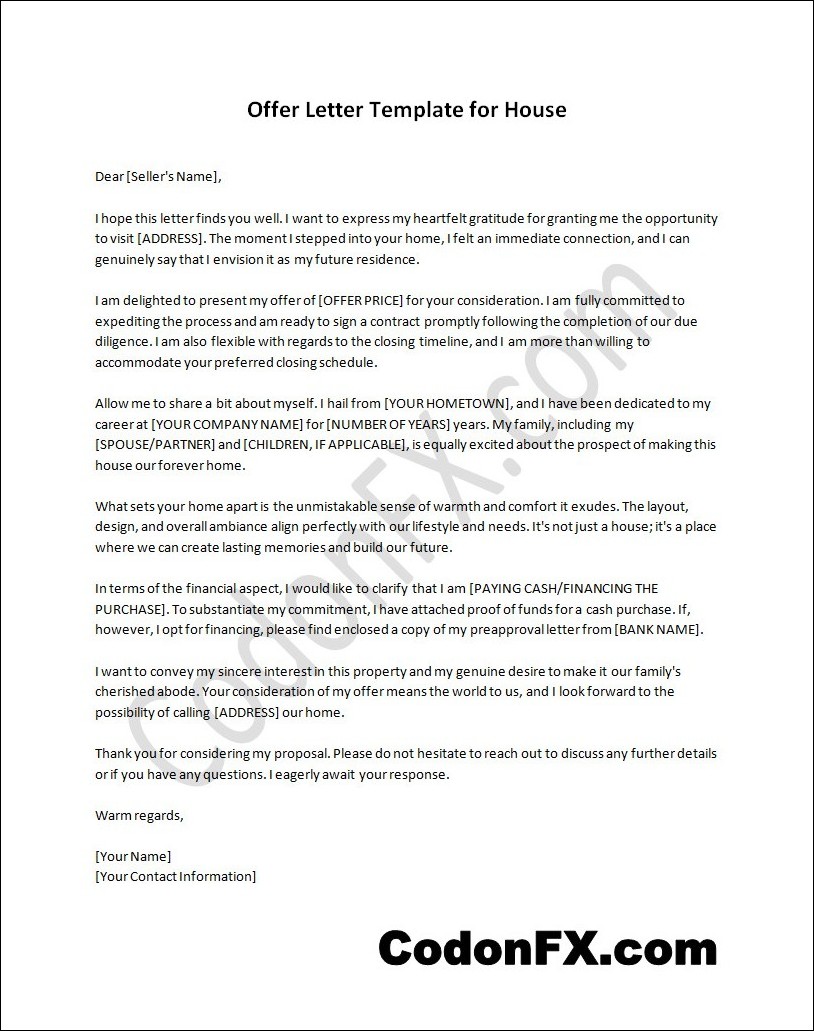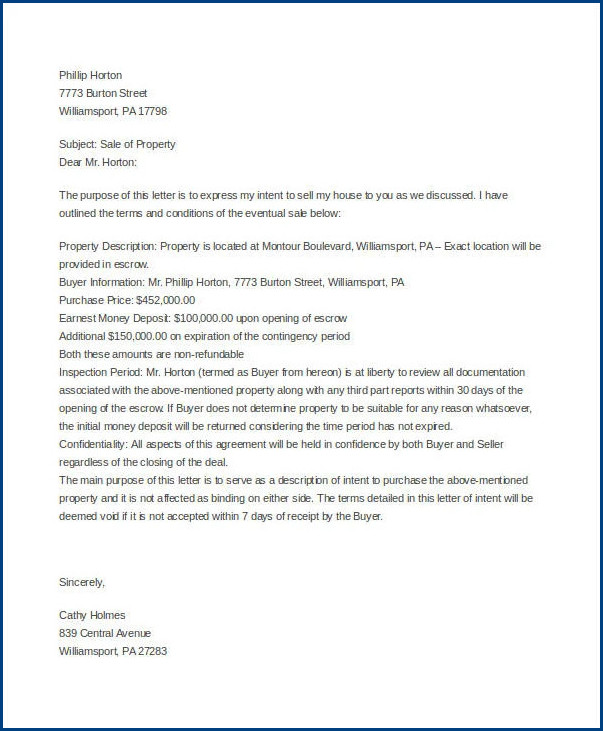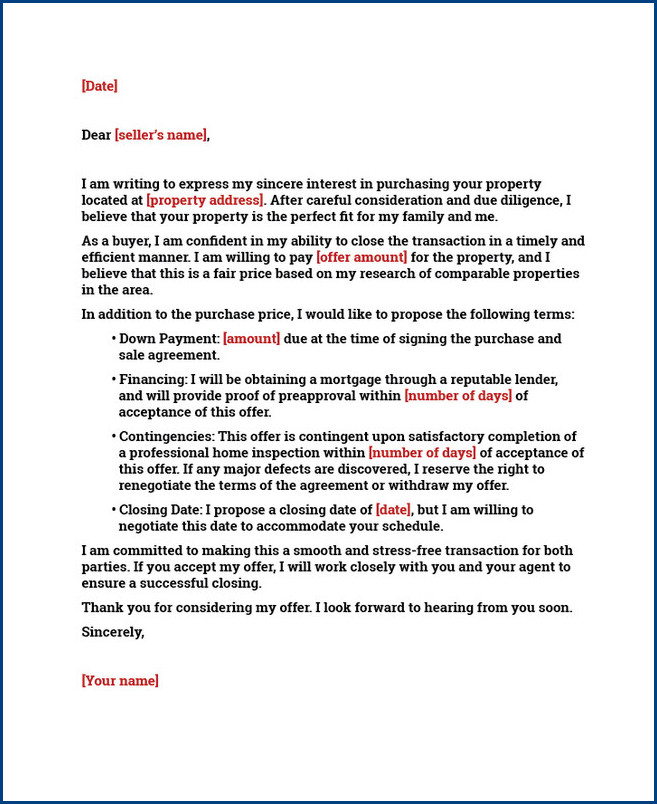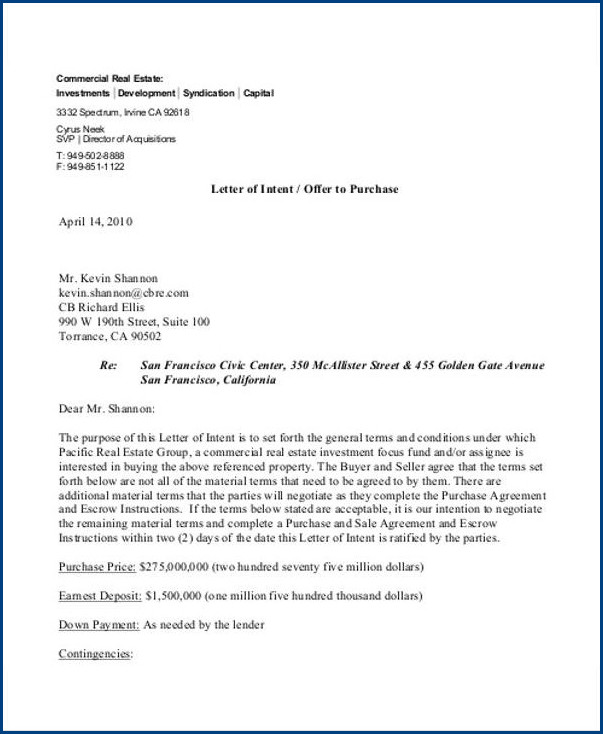
What is an offer letter for a house?
An offer letter for a house is a formal document that outlines the terms and conditions of a buyer’s proposal to purchase a property. It serves as a written confirmation of the buyer’s intention to buy the house and includes important details such as the purchase price, financing arrangements, and any contingencies. The purpose of an offer letter is to communicate the buyer’s interest in the property to the seller and initiate the negotiation process.
The offer letter for a house is a crucial step in the home-buying process as it helps establish a legal and binding agreement between the buyer and the seller. It provides a clear written record of the proposed terms, protecting both parties’ rights and minimizing potential misunderstandings. The letter also serves as a starting point for negotiations, allowing the buyer and seller to discuss and potentially modify the terms in order to reach a mutually acceptable agreement.
It is important for buyers to carefully consider and clearly state their requirements and expectations in the offer letter to ensure a smooth and successful home-buying process. Ultimately, the purpose of the offer letter is to express the buyer’s genuine interest in purchasing the house and to initiate a formal negotiation process with the seller.
Why do investors use offer letters for real estate?
Investors in the real estate industry often rely on offer letters as a crucial tool in their investment strategy. These letters formalize the terms and conditions of a potential purchase, providing a clear outline of the buyer’s intentions and expectations. By using offer letters, investors can demonstrate their seriousness and commitment to the seller, which may increase their chances of securing a favorable deal.
Additionally, offer letters allow investors to specify important details such as the proposed purchase price, financing options, and desired closing date, providing a comprehensive picture of the transaction.




What should be included in a real estate offer letter?
Here are the key items that should be included:
- An address and description of the potential property. The offer letter should clearly state the address of the property being offered, along with a detailed description of its features and characteristics. This helps to ensure that both parties are on the same page regarding the property in question.
- The sale price. Clearly stating the proposed sale price is crucial as it sets the foundation for negotiations. It is important to do thorough research on the market value of similar properties in the area to determine a fair and competitive price.
- Proposed terms for the sale. The offer letter should outline the terms of the sale, such as whether it is contingent on financing, inspections, or other conditions. Including these terms helps to protect the interests of both the buyer and the seller.
- Ideal closing date. Specifying the preferred closing date allows the seller to plan accordingly and helps to streamline the transaction process. It is important to consider factors such as financing, inspections, and the availability of all parties involved when determining the ideal closing date.
- Earnest money deposit amount. The offer letter should state the amount of earnest money the buyer is willing to put down as a show of good faith. This deposit is typically held in escrow and applied toward the purchase price at closing.
- Deed and title discussion. It is essential to address the transfer of the property’s deed and title in the offer letter. This ensures that both parties are aware of how the transfer will occur and helps to avoid any potential disputes in the future.
- How utilities and taxes will be adjusted during the transaction. The offer letter should specify how the adjustment of utilities and taxes will be handled between the buyer and the seller. This ensures that both parties are aware of their responsibilities and avoids any misunderstandings.
- Any provisions and contingencies necessary to the sale. If there are any specific provisions or contingencies that need to be included in the offer letter, such as repairs or inspections, they should be clearly stated. This helps to protect the interests of both parties and ensures that all necessary conditions are met before finalizing the sale.
- State-specific clauses if required. Depending on the state and local laws, there may be specific clauses or requirements that need to be included in the offer letter. It is important to research and understand these requirements to ensure compliance.
- Date by which the offer will expire. To create a sense of urgency and encourage prompt responses, the offer letter should specify a date by which the offer will expire. This helps to avoid any delays or misunderstandings in the negotiation process.
Including all these details in a real estate offer letter provides a clear and concise document that outlines the terms and conditions of the offer. It helps to ensure that both the buyer and seller have a complete understanding of the proposed transaction, setting the stage for a successful and smooth real estate deal.
How do I write an offer letter for a house?
1. Make your case
When writing an offer letter for a house, it is essential to make a strong case for why the seller should choose your offer. Begin by expressing your genuine interest in the property and why it stands out to you. Highlight specific features or aspects that you admire and how they align with your needs and preferences. By demonstrating your enthusiasm and appreciation for the house, you are more likely to capture the seller’s attention and establish a positive impression.
2. Build a relationship with the seller
In addition to showcasing your interest, it is crucial to build a relationship with the seller through your offer letter. Take the time to research and understand the seller’s motivations, such as their desire for a quick sale or their emotional connection to the property. Incorporate this knowledge into your letter by addressing their concerns or expressing empathy towards their situation. By establishing a personal connection, you can create a sense of trust and increase the likelihood of your offer being accepted.
3. Support your offer
To strengthen your offer, provide supporting information that justifies the price you are willing to pay. Include details about recent comparable sales in the area to demonstrate the market value of the property. If you have conducted a thorough inspection or appraisal, mention any positive findings that add value to the house. Additionally, you can mention your ability to secure financing or provide a larger down payment if applicable. By presenting concrete evidence and financial stability, you are more likely to convince the seller of the fairness and viability of your offer.
4. Explain your contingencies
Lastly, it is important to clearly explain any contingencies or conditions that are part of your offer. Whether it is a financing contingency, inspection contingency, or any other specific terms, outline them in a concise and transparent manner. This demonstrates your commitment to a fair and smooth transaction while also addressing any potential concerns the seller may have. By being upfront and transparent about your contingencies, you can build trust and reassure the seller that you are a serious and reliable buyer.
Remember to maintain a formal and respectful tone throughout the letter, and proofread it thoroughly before submitting it.
Offer Letter Template for House | Word – Download